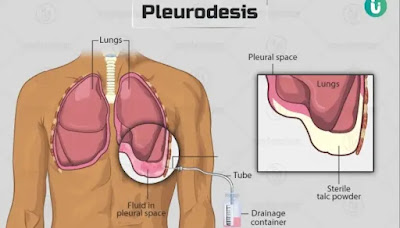What Steps Should I Take Following My Mesothelioma Diagnosis?
After you have a long asbestos exposure for years, there are chances that you are diagnosed with mesothelioma. Before we go ahead, we should give you some details.
Please note that mesothelioma is a serious disorder that attacks the lining of lungs after a long asbestos exposure. Once the physician diagnosis someone with mesothelioma, there are some steps that are to be taken.
The first thing that a doctor
recommends is undergoing a biopsy of lung where a small tissue of lung is
examined.
Biopsies are the sure tests to
confirm mesothelioma. In this technique, a sample of tissue is extracted to
detect cancer cells. Further, thoracoscopy biopsy is known to boast 98%
diagnostic rate for mesothelioma.
Please take a note to steps recommended
for diagnosing mesothelioma:
Biopsy
Blood tests
Imaging tests
Physical examination
It has been seen that many patients
are unaware about their condition and they come to know only after their doctor
diagnose.
As per asbestos.com, a patient named
Wendy M. Phillips has to say that she had to admit with a simple blood clot.
After further testing were done, it came to know that mesothelioma tumors
started to block her lymph nodes.
Mesothelioma Testing
As we mentioned earlier, there are
different types of tests recommended to diagnose mesothelioma. These tests
include physical exams, blood tests, imaging scans, and chest X-rays.
The diagnostic journey differs for
each individual, and there is significant variation in the sequence of tests.
The very first step towards
confirming the diagnosis of mesothelioma is physical exam. Afterwards, the
doctor will most probably look for some other symptoms of mesothelioma.
He can also recommend some more tests including an imaging test. It's mainly done to locate and identify the size of tumors. These tests are mainly done as Mesothelioma blood tests are actually not accurate enough for the quick diagnosis of the disease.
What Takes Place During a Mesothelioma Biopsy?
The only way mesothelioma can be diagnosed is through biopsy. It's a procedure where a small tissue or fluid is taken out from the patient and is examined for the presence of cancer cells.
Mesothelioma Biopsy Options
Thoracoscopy: accurate for pleural
mesothelioma
Mediastinoscopy: For lymph nodes
biopsy around the windpipe
Laparoscopy: For peritoneal
mesothelioma
Cytology or Fine Needle Aspiration:
For tissue samples that are hard to obtain
Pathologists examine biopsy samples using a microscope to identify the types of cancerous cells present. They employ histochemical testing and other pathology methods to detect mesothelioma cells.
What to Do After a Mesothelioma Diagnosis
After receiving a mesothelioma
diagnosis, the most critical step is deciding on a treatment plan. Treatment
options may include surgery, chemotherapy, radiation therapy, or immunotherapy.
The treatments recommended by your
doctor will depend on factors such as the location and type of tumors, as well
as the stage of the disease. Mesothelioma specialists offer access to advanced
therapies and participation in clinical trials.
Being diagnosed with mesothelioma can
feel overwhelming for patients and their families. Establishing a strong
support network is one of the most effective coping strategies. Seek support
from family, friends, neighbors, and community members to navigate the
challenges associated with a mesothelioma diagnosis.
Consider reaching out to your cancer center to inquire about available social workers who can connect you with local family resources and therapists for counseling. Additionally, ask about support groups for cancer patients, as sharing experiences with others facing similar challenges can be a valuable way to manage stress.




Comments
Post a Comment